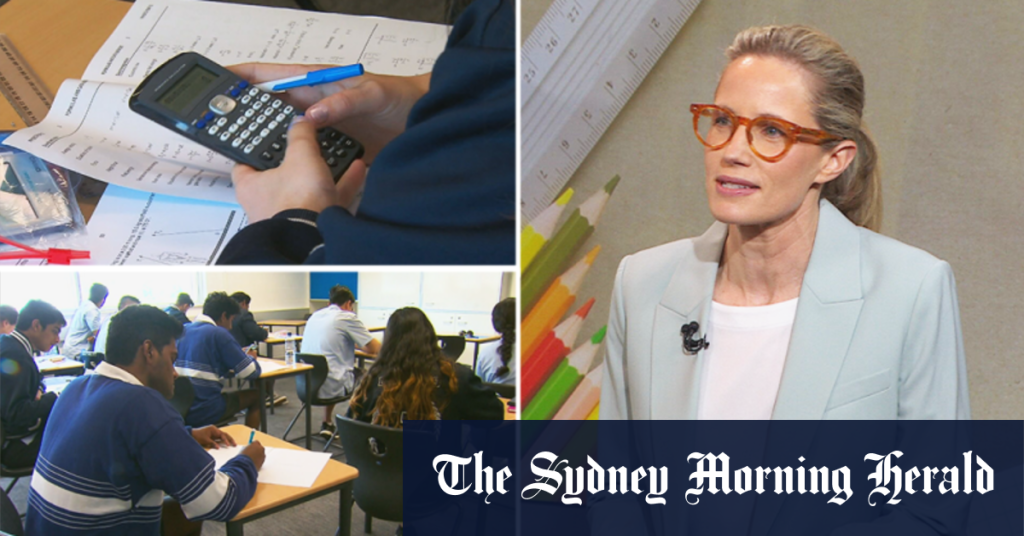Paragraph 1: Introduction
The Higher School Certificate (HSC) examination period is a significant milestone in the lives of New South Wales (NSW) students, marking the culmination of years of dedicated study and preparation. The anticipation of results day can be a source of immense pressure and anxiety, with students often feeling overwhelmed by the weight of expectations from family, peers, and themselves. Recognizing the emotional toll this period can take, clinical psychologist Dr. Charlotte Keating offers valuable advice to help students navigate the HSC outcomes and manage their mental well-being effectively. Her guidance focuses on equipping students with coping mechanisms and strategies to handle a range of potential outcomes, emphasizing the importance of self-care and seeking support during this challenging time.
Paragraph 2: Managing Expectations and Acceptance
Dr. Keating highlights the importance of managing expectations surrounding HSC results. She encourages students to remember that their worth is not solely determined by their ATAR score and that diverse pathways exist to achieve their goals. Students should strive for realistic expectations, acknowledging their individual efforts and recognizing that the HSC is just one step in their journey. It is crucial to accept the outcome, regardless of whether it meets initial expectations. This acceptance forms the foundation for moving forward constructively and exploring alternative options, such as different university courses, vocational training, or gap year experiences. Detaching from the pressure of achieving a specific number allows students to focus on their personal growth and explore opportunities aligned with their interests and values.
Paragraph 3: Practicing Self-Care and Emotional Regulation
Dr. Keating emphasizes the vital role of self-care in maintaining mental well-being during the HSC results period. She recommends that students prioritize activities that promote emotional regulation and stress reduction, such as engaging in regular exercise, practicing mindfulness or meditation, and maintaining a balanced diet. Connecting with supportive social networks, including family and friends, is also essential for emotional well-being. Open communication with trusted individuals provides an avenue for expressing feelings, processing anxieties, and receiving encouragement. Self-care practices empower students to navigate the emotional rollercoaster of the HSC period with resilience and maintain a sense of equilibrium.
Paragraph 4: Seeking Support and Professional Guidance
Dr. Keating encourages students to seek professional support if they are struggling to cope with the emotional challenges associated with HSC results. Reaching out to a school counselor, psychologist, or other mental health professional can provide valuable guidance and coping strategies. These professionals offer confidential spaces for students to discuss their anxieties, process their emotions, and develop personalized strategies for managing stress and building resilience. They can also provide advice on navigating potential disappointment and exploring alternative pathways if the desired outcome is not achieved. Seeking professional help is a sign of strength and demonstrates a commitment to prioritizing mental well-being.
Paragraph 5: Exploring Alternative Pathways and Future Opportunities
Dr. Keating emphasizes the importance of recognizing that the HSC is not the sole determinant of future success. She encourages students to explore the diverse range of pathways available to them, including university courses with different entry requirements, vocational training programs, apprenticeships, and gap year experiences. Exploring these options allows students to broaden their horizons, discover new interests, and develop valuable life skills. Students should consider their passions, strengths, and long-term goals when making decisions about their future, recognizing that alternative pathways can lead to fulfilling and successful careers. The HSC outcome is a stepping stone, not a roadblock, and embracing diverse possibilities empowers students to forge their unique paths.
Paragraph 6: Focusing on Long-Term Growth and Resilience
Dr. Keating’s advice ultimately encourages students to view the HSC results period within the broader context of their personal development and long-term growth. The experience, regardless of the outcome, provides valuable lessons in resilience, adaptability, and self-discovery. Students should focus on developing coping mechanisms that will serve them well beyond the HSC, equipping them to navigate future challenges and embrace new opportunities with confidence. The HSC is a significant milestone, but it is not the defining moment of a person’s life. By prioritizing mental well-being, seeking support, and embracing diverse pathways, students can navigate this challenging period with resilience and embark on fulfilling journeys towards their chosen goals.

